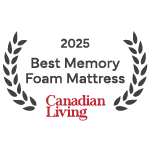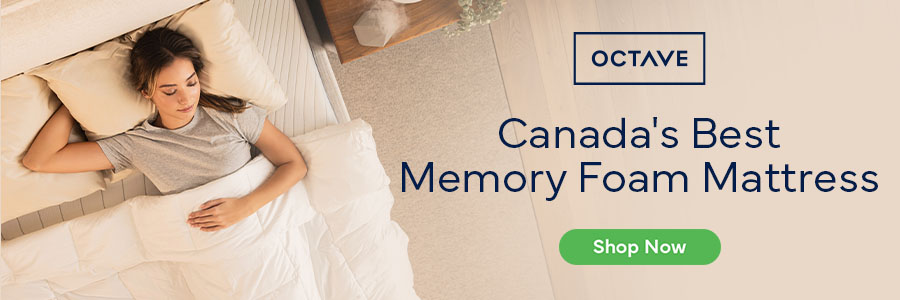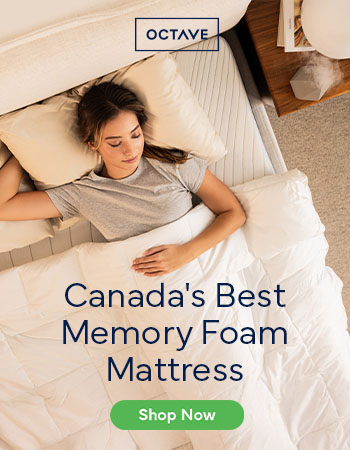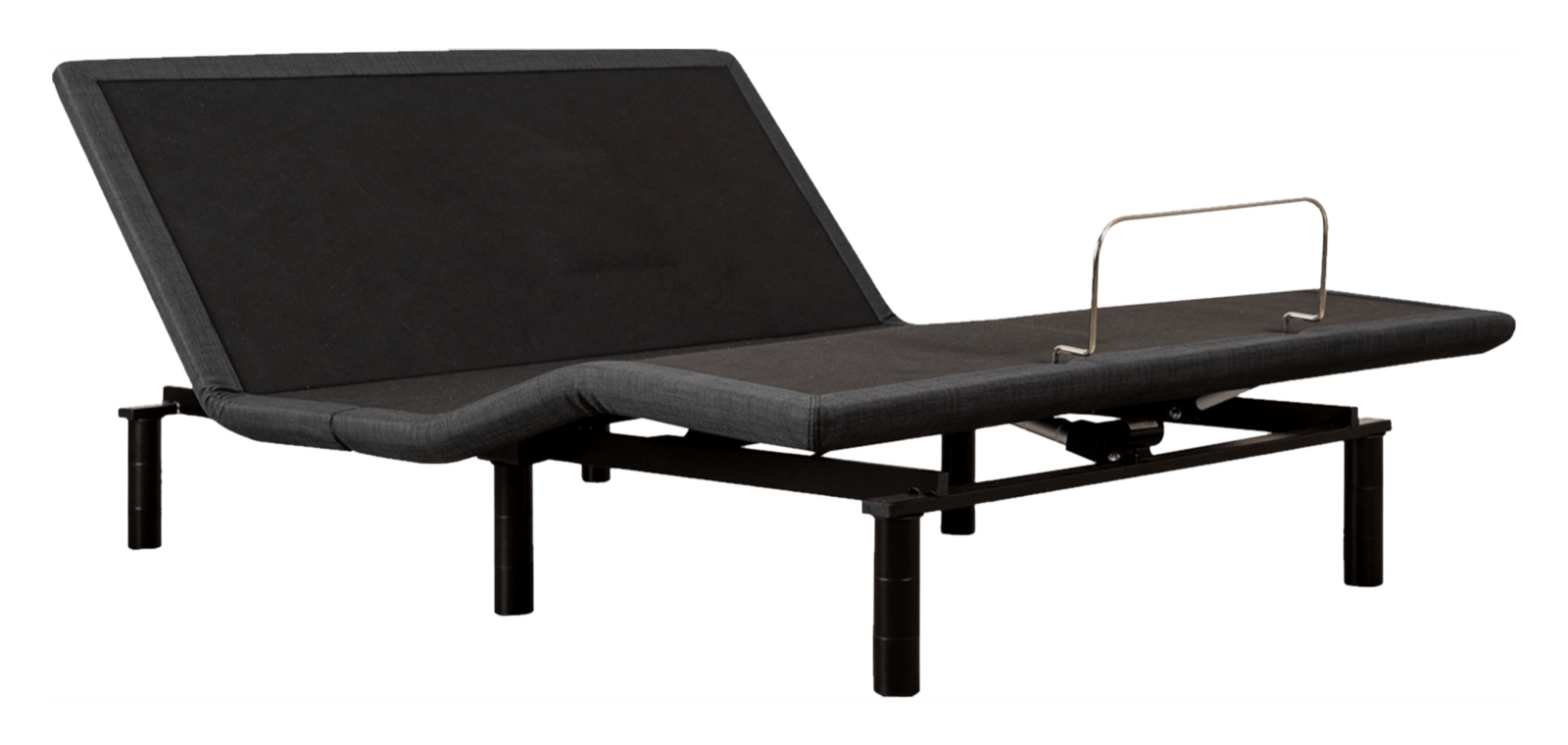Should You Buy Eight Sleep? (2025)
Updated: December 10, 2025 | Published: September 25, 2024Sleep technology is the term used for consumer electronics that help you sleep better at night. From smart mattresses and sleep trackers to wearable gadgets and sleep-enhancing apps, sleep tech is a relatively new industry that makes many promises to consumers about getting better sleep.
In this article, we’ll explore the downsides (and the upsides) of sleep technology, using Eight Sleep’s Pod as an example. The Pod is Eight Sleep’s flagship product, a “smart sleep” system that features active temperature regulation and app-integrated data collection. We’ll answer the most important question: Is sleep tech worth it?
Disclaimer: We co-authored this article with dedicated healthcare provider Dr. Gregory Stoltz, DC. The following tips, including those from Dr. Stoltz, are general recommendations and aren’t meant to replace your doctor’s professional diagnosis. Always consult your physician before trying these sleep positions.
What is Eight Sleep?
The Eight Sleep Pod is a cooling sleep technology that combines a mattress cover with a water-circulating hub. The water moves through the cover to provide cooling benefits. The hub is controlled by a paid subscription app on your phone. You can also add an adjustable base, which comes standard with higher-priced Pod models. Eight Sleep offers three versions of the Pod: Pod 3, Pod 4, and Pod 4 Ultra.
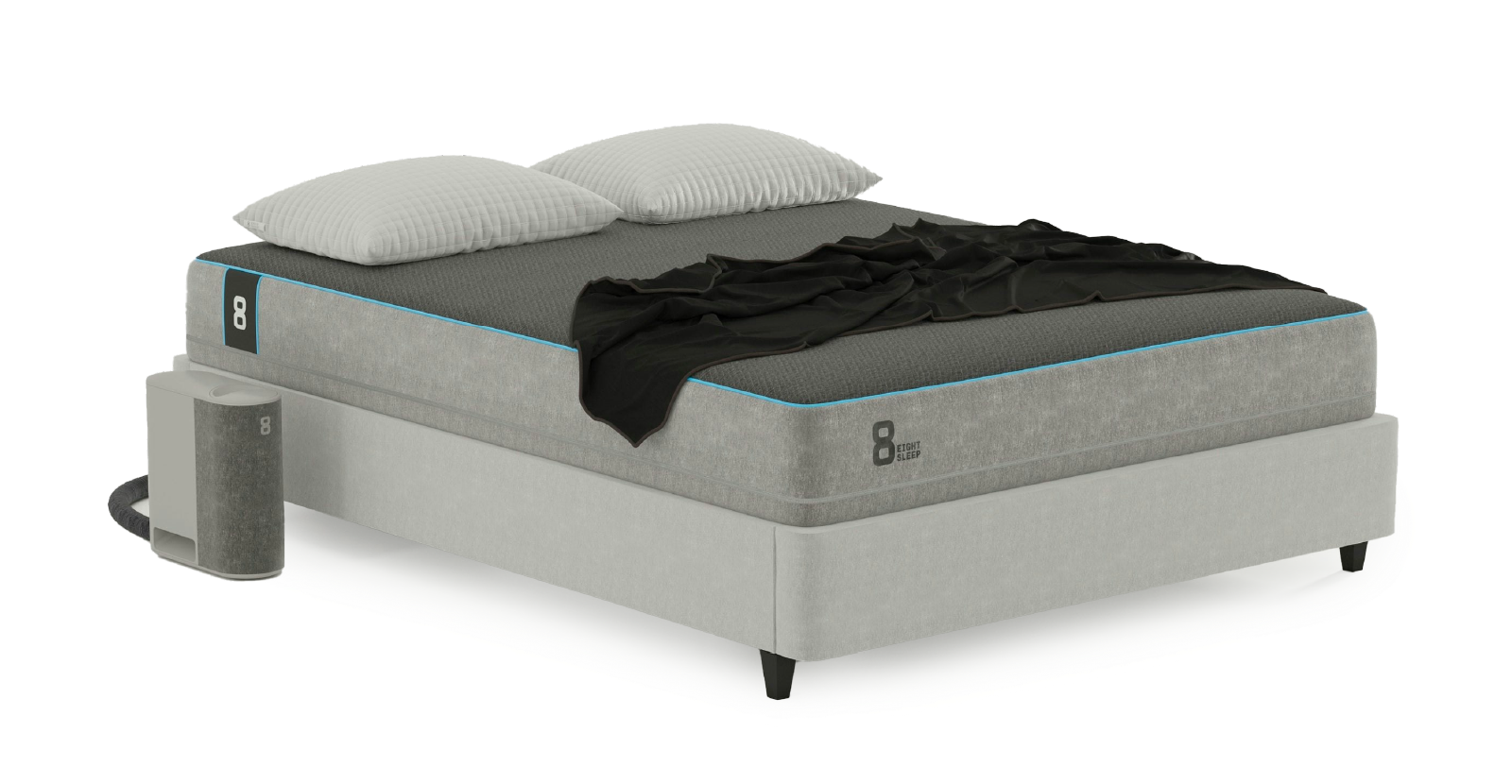
Downsides of sleep technology
Prohibitive pricing
One of the largest obstacles to using sleep technologies like Eight Sleep’s Pod is the cost, which includes:
- $1,500 for the optional bundled mattress in a California queen size (no, standard mattress sizes aren’t available)
- $5,449 for the Pod 4 Ultra, including a California queen-size cover and hub with the adjustable base
- A minimum of $299/year to subscribe to the basic version of the company’s Autopilot app, which tracks your health data and adjusts the bed’s temperature and position accordingly
This comes out to a grand total of $7,248 up front, with an added app subscription cost every year after. That’s a pretty steep price for temperature-controlled sleep. There are less expensive alternatives to help you stay cool while you sleep.
You can easily control your sleep temperature with the right type of mattress. For comparison, Octave Horizon is $1,499 for a queen size, and offers more advanced cooling technologies than Eight Sleep’s bundled mattress. It also scored 9.0 for cooling features—the highest score of any mattress we’ve reviewed.
Octave Horizon’s cover is woven with CryoFusion™ cooling nanofibres for a cool-to-the-touch feel. Its interior contains layers of ecoLuxe® cooling gel foam and copper-infused memory foam treated with PolarMAX® phase-change material for temperature control, as well as aerated latex foam and multi-zone support foam with integrated air channels for breathability. You also get all these cooling features for less than one-fifth of Eight Sleep’s potential cost.
Restrictive policies
Buying sleep technology means buying into the policies that come with your purchase, and sometimes those policies can have pretty big restrictions. Eight Sleep’s Pod technology only has a two-year standard warranty, or a five-year extended warranty if you have the Enhanced Autopilot subscription. But Eight Sleep’s five-year extended warranty means bumping that annual app subscription from $299 to $399.
Eight Sleep also requires you to stay subscribed to its Autopilot app for at least one year. It’s not clear whether you can continue using the Pod if you cancel your app subscription after the one-year mark. For most sleep tech companies, app subscriptions aren’t optional. It’s sometimes possible to get out of them, but like Eight Sleep, there’s often a mandatory use period before you can cancel.
Trial periods can be very restrictive, too. Eight Sleep only offers a 30-night trial for its Pod technology, which is very short for any sleep product—especially one with a hefty price tag. This trial period is far too short to provide any real value. One month may not be enough time to break in your mattress. In fact, according to Eight Sleep, you need at least 8 weeks to get used to a new mattress, which is longer than the trial period for their product.
In comparison, Octave Horizon comes with a much more generous 365-night sleep trial and a 365-year warranty. If it doesn’t work for you, you can return the mattress within the trial period for a full refund with free return pickup. Horizon is also more affordable at $1,499 for a queen size.
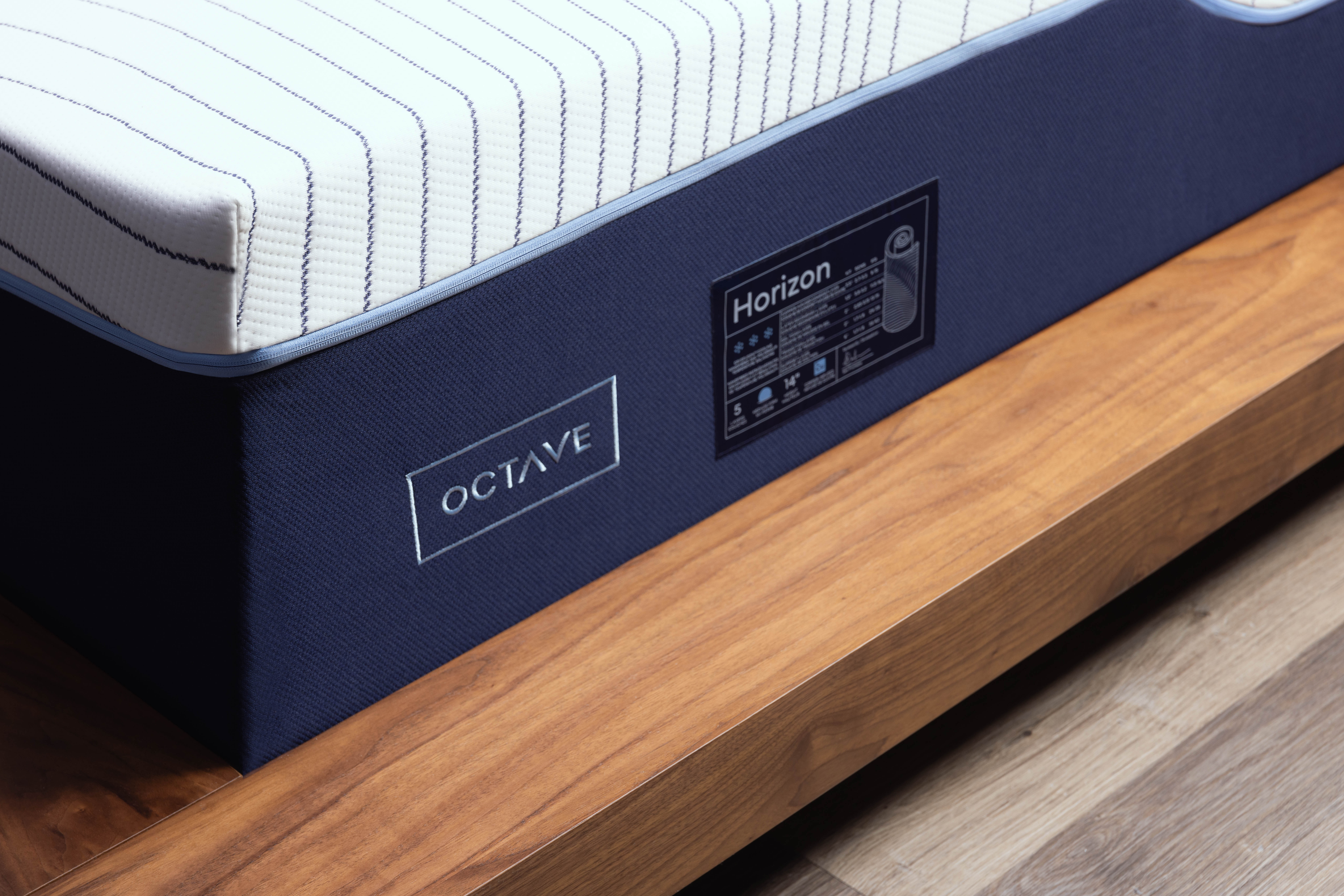
Data security
It’s worth noting that required app subscriptions are a common practice for sleep tech companies. In fact, it’s often not possible to use a lot of sleep technology without using its paired mobile app. But this raises a lot of questions about how sleep technologies gather your personal information over time. Eight Sleep’s Autopilot app, for instance, gathers data like:
- Your age
- Your time spent in various sleep stages
- How long you sleep
- When you get into and out of bed
- Your breathing and heart rate
Increasingly, sleep tech companies are keeping their collected data in cloud-based storage. This can put your personal information at risk. Data breaches have become more common in today’s internet-based world.
According to Statista, there were 3,205 data breaches in American-based companies alone during 2023, which are estimated to have affected over 353 million people worldwide. As hard as cybersecurity experts work to keep your data secure, there’s just no guarantee that any sleep technology company can keep your personal information safe.
It’s also worth noting that any company that controls health data—including your sleep and health tracking data—should be HIPAA or PIPEDA compliant. Compliance ensures that businesses follow the correct steps to protect customer information, which should be detailed in the company’s privacy policy.
Eight Sleep’s privacy policy only talks about information gathered when you use the company’s website. It doesn’t share any information about health data storage or protection, which is concerning.
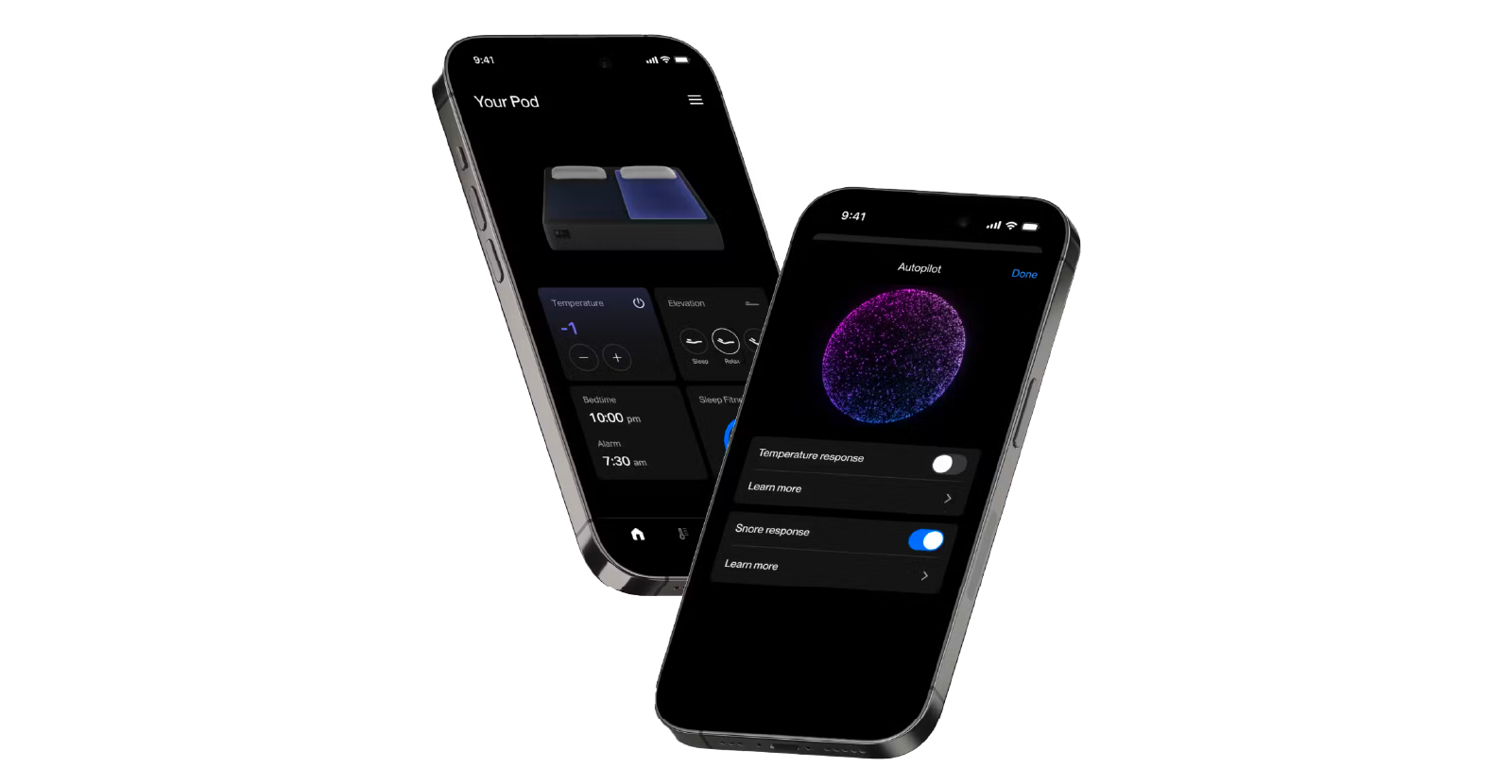
Benefits of sleep technology
Health monitoring
Sleep tech lets you monitor your sleep habits on an ongoing basis. Apps like Autopilot are often paired with sleep tech that lets you continuously monitor your vital signs, including your heart rate and respiratory rate. These can provide useful insights to improve your well-being, though they’re not a replacement for a visit to your doctor or a dedicated sleep study.
However, your body can also tell you how you slept a lot better than a device. Health monitoring technology makes assumptions about your physiology based on the average population that was used to develop the technology. So while the technology may give insights, it’s more important to look at your body’s broader trends rather than specific data points.
Temperature control
Some smart sleep systems like the Eight Sleep Pod can control your bed’s temperature. The Pod lets you select a temperature range of 13–43 degrees Celsius and can adjust its temperature throughout the night. This feature can be helpful if you’re a hot sleeper, but you can also enjoy cooling benefits with a mattress like Octave.
Managing sleep disorders
If you live with a sleeping disorder like sleep apnea or insomnia, sleep technology can help you manage your condition. For instance, Eight Sleep’s Pod 4 Ultra can automatically adjust the elevation of your upper body if it detects you snoring. (You can also use the Octave Adjustable Bed to change your position for a much lower cost of $1,299 for a queen size.)
Tips for sleeping better
Want to sleep better but don’t want to spend over $7,000 on sleep technologies like the Eight Sleep Pod? Try some of these tips at home instead.
- Limit your nap times. Humans are meant to be active when there’s light outside and asleep when it’s dark—not the other way around. A long afternoon nap is nice, but NIH and Mayo Clinic studies show it also makes falling asleep at night more difficult. Try not to nap later in the day. If you do, keep it to an hour or less.
- Stick to a sleep schedule. Go to bed at the same time every night, wake up at the same time every morning, and don’t get into bed until you’re ready to sleep. This helps you avoid insomnia and primes your body to maintain a consistent sleep pattern.
- Optimize your sleep environment. Keep your bedroom dark, quiet, and cool to help promote a restful environment. Use a comfortable mattress and pillows, and choose bedding that you find cozy. If you’re a hot sleeper, put on a fan or get cooling bamboo sheets to keep temperatures low.
- Manage stress. You may sleep better if you can manage the stress that keeps you awake. Practice techniques like deep breathing, meditation, or progressive muscle relaxation. You can also try mindfulness and relaxation apps, or listen to calming music, podcasts, or audiobooks as your body winds down.
- Limit your screen time before bed. Science has proven that brightly lit, brain-stimulating devices aren’t calming or relaxing before bed. Turn off your computer and mobile devices at least an hour before going to bed, and avoid blue light, too. This gives your brain the chance to relax and ease into a good night’s sleep.
- Limit caffeine and alcohol. Both caffeine and alcohol make it harder to achieve REM sleep (the phase where you get the deepest sleep). Studies say you should avoid caffeine at least 9 hours before bedtime. It’s also a good idea to avoid alcohol for at least a few hours before sleeping.
- Stay active during the day. Engage in regular physical activity, even if it’s just a half-hour walk. Try not to exercise too close to bedtime, though. Vigorous exercise can be too stimulating to help you relax, especially if it involves high-intensity cardio.
- Get a good mattress and bedding. It’s hard to fall asleep if your bed is uncomfortable. Choose a mattress and bedding with the firmness and features that you need. Think about your bedding and pillow, too. The right type of pillow can help you fall asleep easier and relieve pressure on your head and neck while you sleep.
Is sleep tech worth the expense?
Sleep technologies, whether in-bedroom solutions like Eight Sleep’s Pod or wearable devices, can positively influence your sleep. But they tend to be pricey, often require subscriptions to mobile apps that are difficult to opt out of, and have shorter warranty periods than mattresses and foundations that offer similar benefits.
If you’re a hot sleeper, the Octave line of foam mattresses helps you sleep cool without the need for any electronics. The three mattresses available in the brand—Vista, Mirage, and Horizon—are all made with temperature-regulating fabrics, copper-infused memory foam for heat dissipation, and multi-zone support foam with air channels for a combination of breathability and pressure-point relief.
Mirage and Horizon each come with upgraded features for even more cooling, like breathable aerated latex foam and cooling gel foam for temperature control. At just $1,499 for a queen size, Horizon comes with a 365-night sleep trial and 15-year warranty, plus a free bedding bundle with your purchase.
If sleep position is important to you, the Octave Adjustable Bed offers an affordable and convenient way to control your body’s elevation while in bed. At $1,299 for a queen-size frame, it works with any mattress that’s compatible with an adjustable bed. And with a 120-night sleep trial, you’ll have plenty of time to get to know it before buying.
Our goal is to provide the information you need to find the mattress that’s right for you. Get started with some of our most popular mattress shopping resources:
- Best Mattress Guides: Best Mattress Canada, Best Mattress In a Box
- Reviews: Douglas Original, Logan & Cove Choice, Juno, Octave Vista
- Comparisons: Douglas vs Endy, Douglas vs Casper
We use independent, third-party engineering firms (commissioned by us) with the APEGA stamp of approval to conduct mattress testing on our behalf, using publicly available data. We review and test all mattresses on 40+ criteria we think are important to you, including price, country of manufacture, sleep trial, warranty, features, materials used, motion isolation and edge support ratings, customer satisfaction reviews, returns, and refunds.



